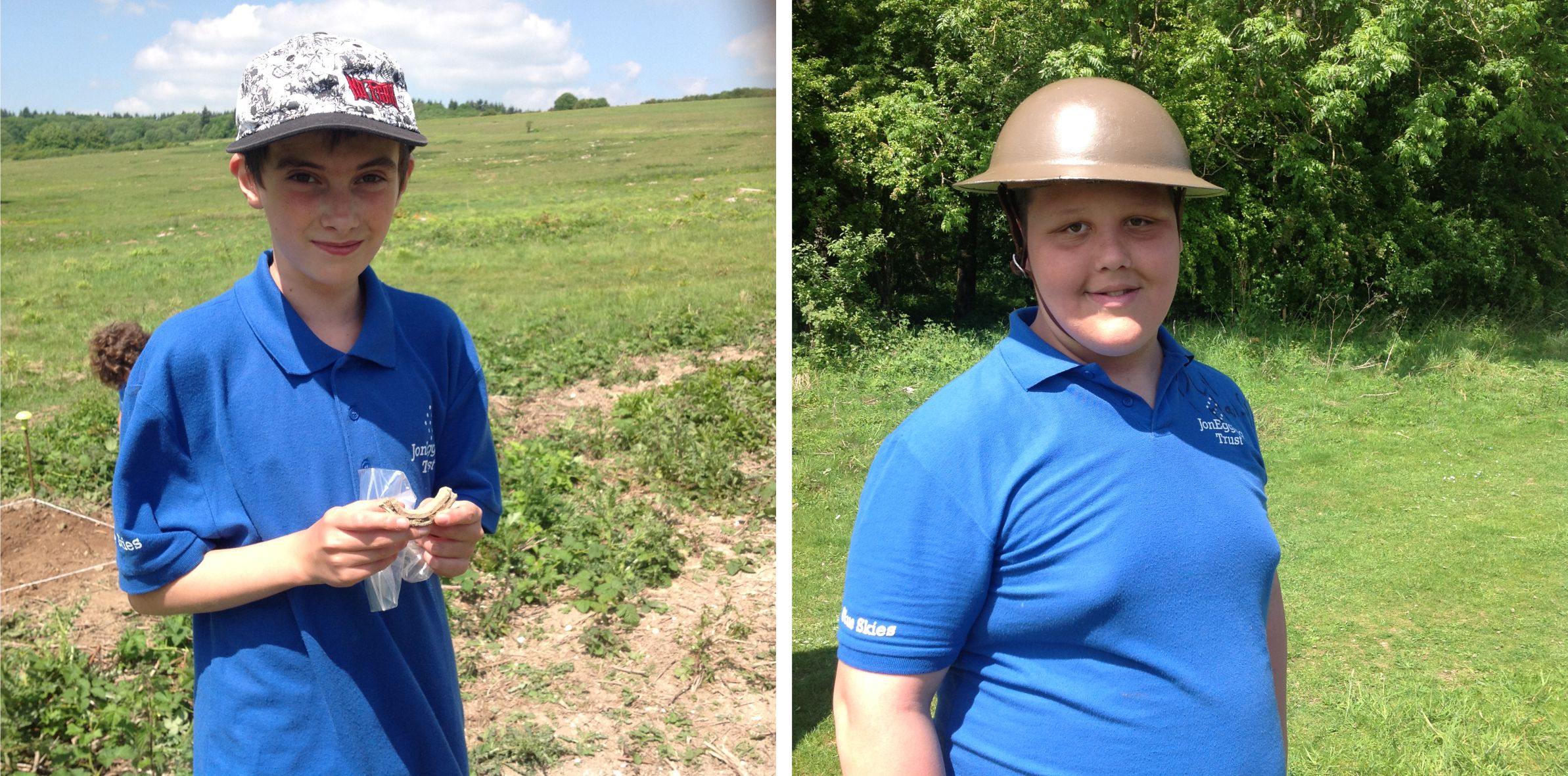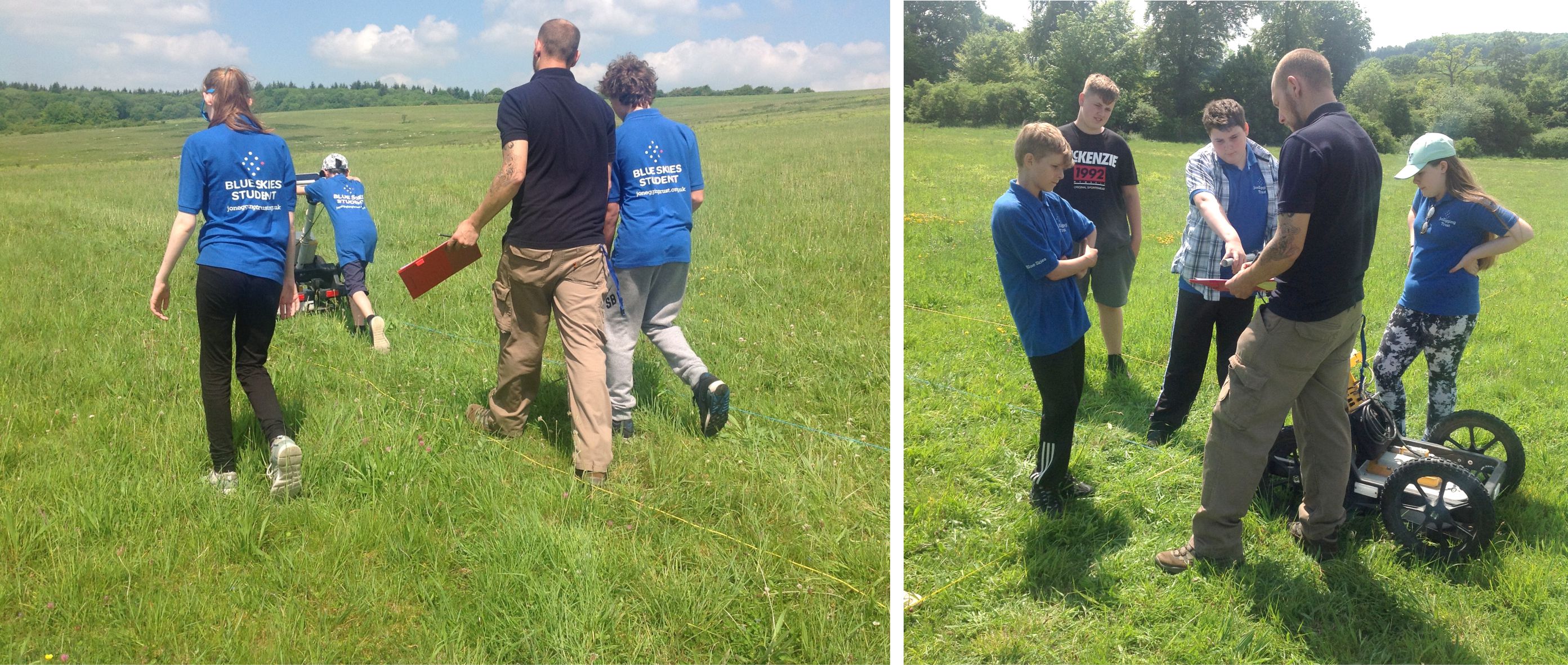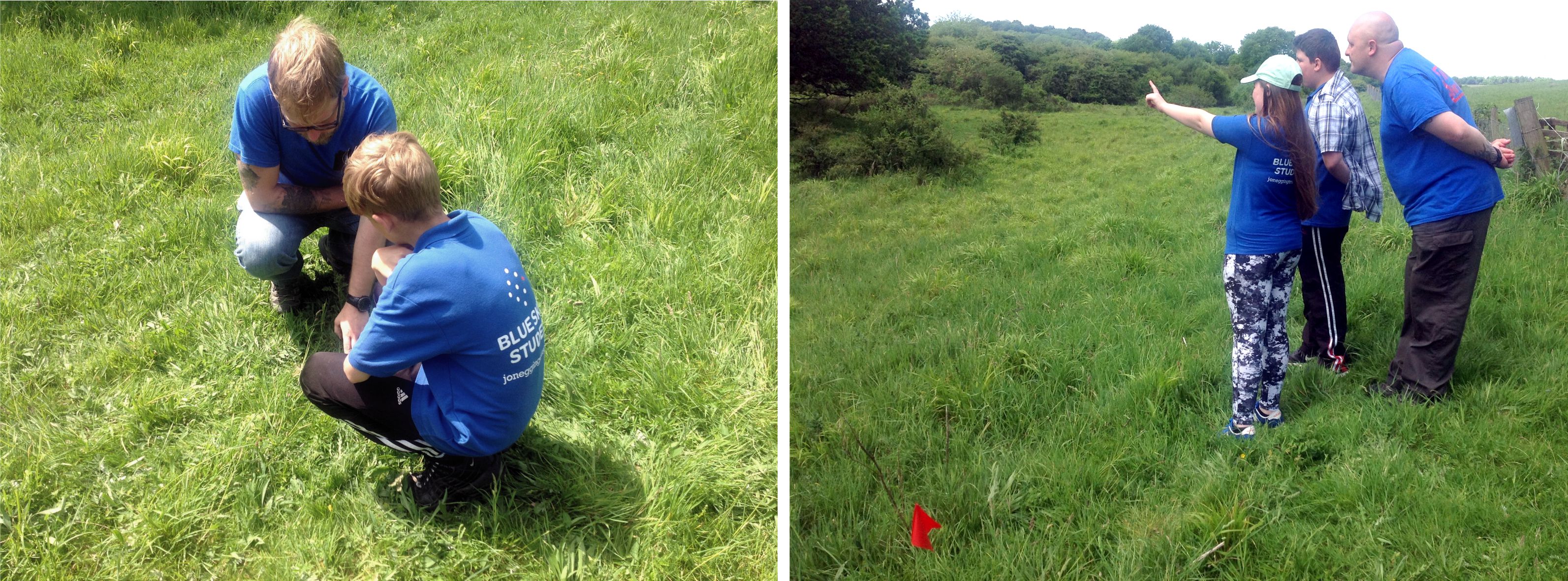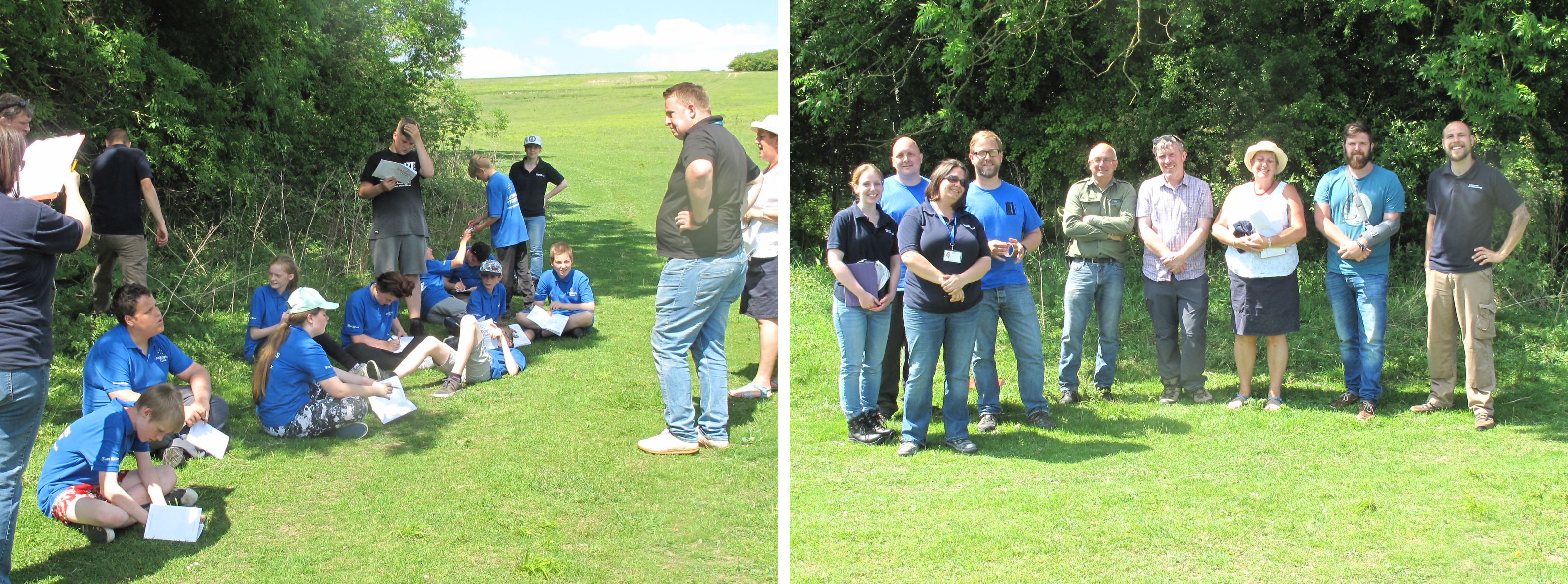In late May 2017, following on from their visit to the Wessex Archaeology (WA) Salisbury office, the students on the first year of the Jon Egging Trusts’ Blue Skies Programme, joined us in the field at Perham Down (on the Salisbury Plain Training Area) for a day of teamwork exercises with themes relating to archaeology, the military and the First World War. The event was co-hosted by Richard Osgood, Senior Archaeologist for the
Defence Infrastructure Organisation (DIO). The Defence Infrastructure Organisation is part of the Ministry of Defence and manages the defence estate which includes the responsibility to assess and maintain both historical and archaeological features, and Dickie Bennett, Project Director for Breaking Ground Heritage (BGH), an archaeology-based recovery pathway for injured military personnel.

The students were welcomed onto site with glorious sunshine and were eager to get out of their minibus and into the fresh air. Split into three groups for the day, they participated in various sessions aimed at developing their historical and archaeological understanding, and enhancing their observational and team-working skills.
Nick Crabb, WA Senior Geophysicist , directed an activity using Ground Penetrating Radar to search for archaeological remains without disturbing the ground. He explained how and why this method of investigation is used in archaeological projects. This was a popular session despite the results not being immediately observable.

Kirsten Egging Dinwiddy and Mai Walker (WA) helped the students accurately set out and excavate a 1 m square test pit, using the correct equipment, in order to investigate the soil safely and collect any artefacts. One lucky participant found evidence for military activity on the site. The test-pitting was thoroughly enjoyed by all, despite the warm digging conditions. Sharing the work emphasised the benefits of working as a team.

Each group also took part in an observational activity organised by BGH, based on genuine military training techniques. It was a real test for both the students and the supervisors, highlighting the importance of clear communication and the value of working together.
Particularly popular was the First World War session, led by Dickie and Richard and his colleagues, in which the students were allowed to handle a selection of artefacts. Photographs of the original owners of some of the objects provided a real sense of connection with the past. A number of the students got to try on genuine First World War army uniforms, which had a similar effect, although all agreed that the summer kit was much too warm, even for an English summer. The activity leaders talked about military training on the site, past and present, and used their own experiences to illustrate examples of teamwork in the military.

One of the highlights of the day was when the BGH team gave the students a real taste of army life by serving up a delicious lunch of army rations – luckily the modern, rather than the First World War, variety!
It was great to see the students away from the classroom, enjoying the outdoors and working together so successfully. Thank you to all involved in making it happen – particularly Kaye Jackson of the Jon Egging Trust, Richard Osgood of the DIO who generously granted access to the venue at Perham Down and provided welfare facilities, Dickie Bennett of BGH and his colleagues Matt Smith and Chris Boyd, Mark Khan, military historian who kindly provided his expertise, Rachel Brown (Senior Community and Outreach Officer, WA) who ensured that the aims of the exercises were met, and Kirsten Egging Dinwiddy (WA).
